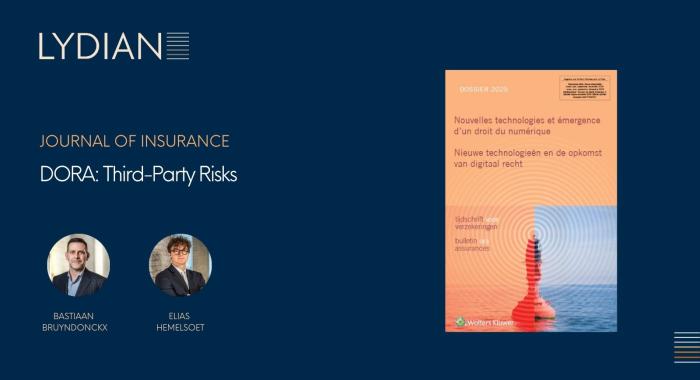
Brexit - Public Procurement
Major implications
Public procurement in the EU and the UK after 31 December 2020
Due to the Brexit the European public procurement directives no longer apply in the United Kingdom (UK). The UK has become a so-called 'third country' for procurement in European Union (EU) and European Economic Area (EEA) Member States and vice versa.
As such, relations between UK and EU/EEA and their respective market operators, looking to participate in tender procedures, would fall back on the provisions of the Agreement on Government Procurement (GPA), to which the UK became a separate party prior to Brexit. Since the GPA does not cover all works, services and goods envisaged under the EU/EEA procurement directives, action was needed.
With the signing of the EU-UK Trade and Cooperation Agreement (TCA) on 24 December 2020, the UK and EU aim to extend and refine the GPA, conforming the basic rule of mutual equal treatment of each other's tenderers. Also, the GPA’s scope and framework are further detailed in the TCA. For contracts below the GPA thresholds (and therefore of lower value) and where tenderers are based in the territory of the other party a more general non-discrimination provision is provided.
In general, one could argue that the GPA + TCA framework creates a procurement system in both UK and EU/EEA that is similar to the one under the procurement directives, albeit less restrictive and with ample possibility for both parties to put in their own accents or to promote their own market operators.
What is the GPA?
The GPA was established within the World Trade Organisation (WTO). In addition to the EU Member States, the GPA also includes major players such as the United States, Canada and Japan, as well as countries of importance to the EU such as Israel, Norway (also subject to the directives) and Switzerland.
Although the UK was a party to the GPA through its membership of the EU, it had to go through a new accession procedure as a result of Brexit. With the support of the EU, the UK obtained permission, on 27 February 2019, to (re)join the GPA once it left the EU.
Through the GPA, contracting parties (partially) open their own procurement markets to each other. The basic rule is that tenderers established in a State party to the GPA may not be treated less favorably than domestic tenderers. The GPA imposes procurement procedures, similar to the procurement procedures known under the European public procurement directives. The GPA also provides for rules regarding publication and transparency obligations, minimum time periods, obligations to include selection and award criteria, etc.
The scope of the GPA is different from the European public procurement directives. The GPA is based on a system of annexes in which each party can specify how far it goes in opening its procurement market.
The coverage schedules of parties are an integral part of the GPA and are contained in appendix I to the agreement (see here). The schedule of each party contains several annexes which define the concerned party's commitment with respect to four dimensions of coverage: the procuring entities covered by the agreement, the goods, services and construction services covered by the agreement, the threshold values above which procurement activities are covered by the agreement and exceptions to the coverage.
Are also referred to as divergences from the EU framework: the GPA does not require award procedures to be conducted electronically, under GPA negotiations are always allowed as far as this has been previously indicated in the contract notice, the GPA does not provide for the obligation of mutual recognition of certificates and registrations and the GPA does not provide for a mandatory standstill period between the notification of award and the conclusion of the public contract.
TCA: scope?
The TCA broadens the scope of commitments under the GPA. The UK and the EU have thus agreed on an extension of market access compared to the GPA.
Tenders falling under the scope of the TCA are those contracts covered by the GPA, as well as, those listed in 'Annex PPROC-1' of the TCA. The TCA extends market access to, among others, the gas and heat distribution sector, private monopoly utilities and a range of ancillary services in the hospitality, telecom, real estate, education and other business sectors.
TCA: agreements between the EU and the UK?
With the TCA, the EU and the UK aim to "guarantee each Party’s suppliers access to increased opportunities to participate in public procurement procedures and to enhance the transparency of public procurement procedures.”
The goal is achieved by incorporating the provisions of the GPA almost entirely under the TCA and the parties have also agreed on several supplements to the GPA which seek to overcome the imperfections of the GPA. Some of these additional agreements amount to the adoption of principles contained in existing EU directives.
To be noted:
| TCA Provisions | Content |
|---|---|
| Proc. 3 and 4: use of electronic means in procurement and Electronic publication | Contracting authorities will, as far as possible, award contracts covered by the TCA by electronic means and will ensure that the systems used do not restrict access to the tender procedure. The UK has already introduced a new electronic platform called 'Find a Tender’. |
| Proc. 5: Supporting evidence | In principle, contracting authorities may not require tenderers to add with their tenders documentary evidence to proof that the grounds of exclusion do not apply to them or that they meet the conditions for participation. |
| Proc.6: Conditions for participation | Where tenderers are required to demonstrate a certain level of experience, contracting authorities cannot impose that this experience relates to their own territory. |
| Proc.7: Registration systems and qualification procedures | Where contracting authorities maintain a system of registration of tenders, they should ensure that interested tenderers may apply for registration at any time. Any tenderer that has made a request should be informed of the decision to accept or reject that request within a reasonable period. |
| Proc.8: Selective tendering | Where contracting authorities use a selective tendering procedure, the number of suppliers invited to tender must be sufficient to ensure genuine competition. |
| Proc.9: Abnormally low prices | Where contracting authorities receive a tender containing an abnormally low price, they may verify whether the price includes the granting of subsidies. |
| Proc.10: Environmental, social and labor considerations | Contracting authorities must be able to take environmental, labor and social considerations into account, provided they are stated in the contract notice or in the tender documentation. |
| Proc.11: Domestic review procedures |
Domestic review bodies must be independent and impartial, including by having at least one legally qualified member. Substantive legal protection arrangements have also been included. For example, the EU and the UK must in principle ensure that the contracting authority does not conclude the contract until the review body has taken a decision or made a recommendation on interim measures, corrective measures or compensation for the loss or damage suffered. |
What with tender procedures not falling under the scope of the TCA?
The TCA provides for a general 'national treatment beyond covered’, meaning that measures taken by a party shall not result in less favorable treatment for tenderers established in the territory of the other party as compared to its own like tenderers. This protection may be important in the case of contracts whose value falls below the GPA thresholds, and which are therefore not subject to the prohibition of discrimination under the GPA.
What with ongoing tender procedures & contracts started before 31 december 2020?
They must continue to follow the previous EU regulation until the contract is awarded. In terms of legal protection, the transitional regime also provides protection for ongoing procedures.
Many ongoing, more complex procurements could thus continue to be governed by EU rules well into 2021 or even beyond. EU law will therefore remain relevant to the UK for the foreseeable future.
The EU rules will continue to apply to all framework contracts awarded (or in the process of being awarded) before 1 January 2021.
How will public procurement rules evolve in the UK?
The UK is no longer subject to European (procurement) law as from 1 January 2021.
The GPA, as elaborated by the TCA, will, at least for the larger public contracts, ensure that a certain equivalence remains between the two public procurement regimes. However, the UK is free to deviate from the EU-based rules from now on, provided it fulfils its obligations under the GPA and the TCA.
An opinion on Brexit transition and public sector procurement guidance has already been published on 15 December 2020.
And in the EU?
It is very likely the next generation procurement directives will take into account the UK’s exceptional position with regard to public procurement. Indeed, the UK is strictly speaking not a third country nor a simple party to the GPA. It is rather a GPA plus party, whose tenderers have certain rights on the EU market under the TCA. The directives will have to take this into account, e.g. when it comes to selection and award criteria, legal recourse etc. In this respect, the UK’s market operators have a unique position under the procurement directives.
To do
- Bear in mind that due to the Brexit the European public procurement directives no longer directly apply in the UK. In the coming months, it will become clear how the UK government will fill in the gap.
- The TCA repeats and supplements large parts of the GPA. As a result, a legal framework similar to the European directives (albeit with differences) will ensure access to a large part of the UK market for tenderers based in an EU country and vice versa. EU tenderers are invited to closely verify whether their works, products or services are covered by the GPA + TCA combination. If not, some discrimination is to be expected.
- The UK is free to deviate from the EU-based rules from now on, provided it fulfils its obligations under the GPA and the TCA. E.g. standards, technical or products norms etc. may vary in future.
- Currently, the biggest change is that UK tender notices are no longer published on Tenders Electronic Daily (TED), but on Find a Tender.
Our dedicated Lydian team is ready to assist you with any questions you might have regarding Brexit.
Contact us with all your questions on brexit@lydian.be
